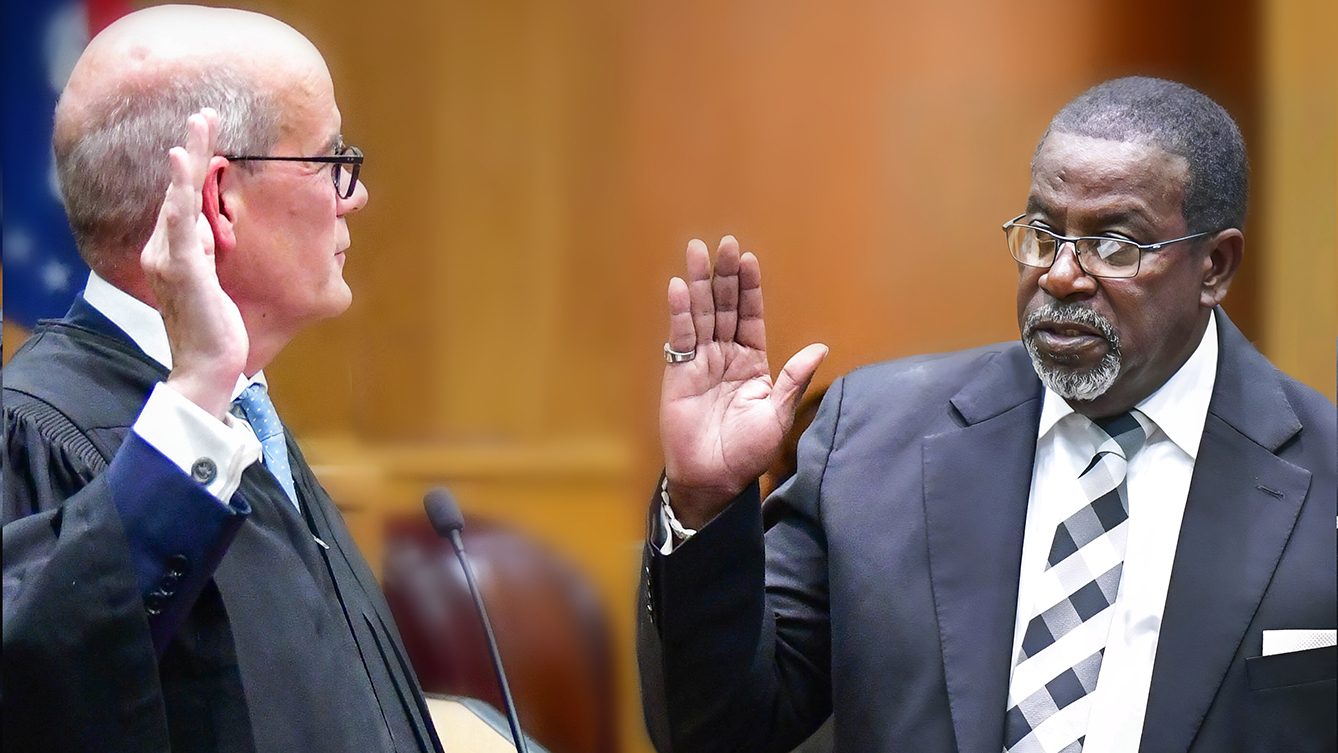Supervisors approve $15.2M budget
Published 5:00 am Wednesday, September 16, 2009
Confused over increased property values and a static propertytax levy, a handful of Lincoln County residents sought assurancesfrom supervisors Tuesday that the new budget for fiscal year 2010did not include a tax increase and had been trimmed to thefullest.
In a rare show of attendance during the annual budget hearing,approximately five citizens engaged supervisors over the $15.2million spending plan, calmly but sternly inquiring into propertytaxes, tax levy millage rates and the manner in which annualproperty assessments are conducted.
The chief sticking point in the discussion was property values,with most of the speakers announcing concerns that the increasedvalues would cause their own property taxes to spike and asking whysupervisors did not lower millage rates for the coming year. Thetax levy, expressed as a millage rate, is used in conjunction withproperty values to determine how much in taxes individual propertyowners pay.
County Administrator David Fields, who compiles the annualbudget under guidance from supervisors, said the gains in localproperty values were offset by a sharp, state-mandated decrease inagricultural use values, coupled with an equally steep decline incar tag sales in the lagging economy. There were also a high numberof exemptions around the county, he said.
Fields said the decreases combined to negate the property valueincrease, resulting in a countywide net assessed value increase ofonly $1.2 million, or .54 percent.
“Lincoln County, being so rural, we have a lot of agriculturaluse land out there,” Fields said.
Thus, supervisors unanimously approved a budget for fiscal year2010 almost identical to that of 2009. The $15,249,636 spendingplan contains only two spending increases, both to be spent onlocal education. The Lincoln County School District will receive anadditional $122,000, or .35 extra mills, to cover the cost of itsvoter-approved 2002 bond issue, and a $40,333 increase will beappropriated to Copiah-Lincoln Community College due to theincrease in value of its five dedicated mills.
The countywide millage rate for fiscal year 2010 was set at49.80, with the county school system’s millage increasing to 50.98.The combined county millage is 100.78.
No county employees will receive pay increases under the newbudget.
District Two resident Doyle Brown sided with supervisors, sayinghe understands that “sometimes taxes have to go up.” But heattacked the Lincoln County Tax Assessor’s Office, questioning themethod in which property assessments are conducted and implyingthat the county’s increased property values are erroneous.
Brown was recently awarded a $300 refund from supervisorsbecause the tax office assessed and charged him for a building thatwas not on his property.
“If these people can make the mistake of charging a buildingthat ain’t there, how can we trust that office to go by andappraise our land?” he asked. “Are they just guessing at what’sthere? We need to look at this before we talk about raising landtaxes.”
Brown’s charge prompted District Five’s David Dunn to return tothe podium and ask how local property values could have increasedwhen prices are falling nationwide and foreclosures are soaring.For the second time, county officials referred such questions toLincoln County Tax Assessor/Collector Nancy Jordan, who was notpresent for the hearing.
“This is something that you will need to sit down with her(about), but I think that is a legitimate question,” said LincolnCounty Chancery Clerk Tillmon Bishop.
When contacted Wednesday, Jordan said her office uses the mostcurrent data on land sales to appraise property, adding that localappraisals were adjusted as low as Mississippi State Tax Commissionguidelines would allow. Although property values around the stateare down, she said Lincoln County’s values are not as low as othercounties.
“Because it’s a great place to live,” Jordan said of LincolnCounty.
Furthermore, Jordan said the state-mandated decrease inagriculture use values totaled around $7 million, and a further $7million was lost in car tag sales, as consumers either held off onbuying new vehicles or purchases cheaper, lower value cars. Alsoincreasing county costs was the legislative car tag credit, whichlawmakers lowered from 5.5 to 4.25 credits, she said.
“The value wasn’t there,” Jordan said.
But for homeowners facing higher property taxes this year, thevalue is there. Dunn, who spoke the most at the hearing, said theconflict between millage rates and property values “could be smokeand mirrors.”
“In my opinion, I don’t see where we should have a taxincrease,” said Dunn, who pointed out that his property taxes wouldincrease $300 under the higher property values. “We’re beingnickled and dimed to death.”
Dunn pointedly asked supervisors if they had considered makingcuts to their own planned expenditures and if they had personallyvisited with business owners to take stock of the economicsituation. Everything possible has been done to keep the budgetlow, they replied.
“That’s the reason we couldn’t get a raise,” said boardpresident the Rev. Jerry Wilson, referring to county workers.
District Three Supervisor Nolan Williamson said his districtwould operate with less than needed as well.
“I’ve got 363 miles of road I fool with, and I need two moremen, but I had to hold off on getting them,” he said.
District Two Supervisor Bobby Watts said the board “had doneeverything humanly possible to cut everything we possibly can.”
Wilson agreed.
“In Hinds County, they’re talking about laying off. It’s ablessing we don’t have to do that here,” the board presidentsaid.





